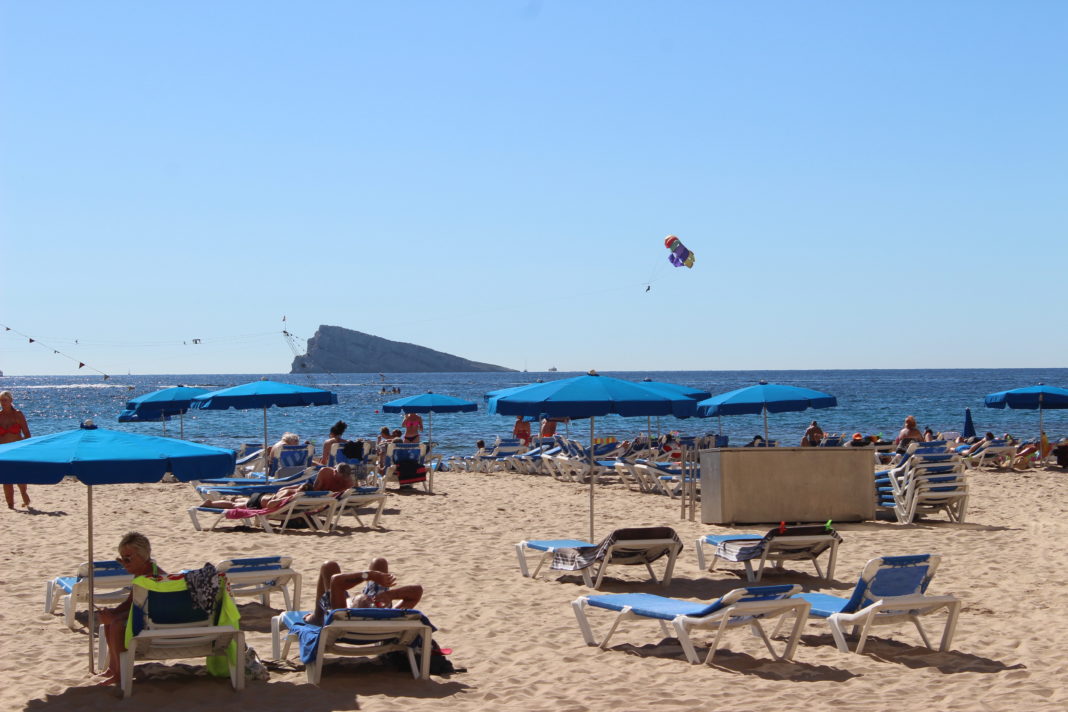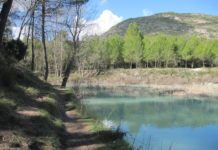- Tourism has established a scientific and technical committee that will address different proposals regarding beach occupation and safety.
With the rate of coronavirus contagions on the decline and looking ahead to the new phases of disinfestation that will eventually lead to the new normality, many different administrations are already looking at ways they can reopen the beaches this summer and give some sort of boost to a suffocated tourist sector.
After the first meeting held on Tuesday by the Consell, headed by President Ximo Puig, a scientific technical committee was formed to discuss how to apply distancing and protection measures in tourist enclaves such as beaches, one of the most important proposals of which would be regulating capacity through a mobile application.
Mario Villar, director of Tourist Intelligence of the Generalitat and head of the new body, said that this is one of the many lines that are being investigated but, as yet, remains to be defined. What is clear, however, is that the capacity of the beaches will need to be limited and that the authorities will have to guarantee that a certain safety distance can be maintained and that crowds are not allowed to gather, a situation that will produce a very different image than the Valencians are used to.
The department of Tourism, headed by Francesc Colomer, who reports directly to the Presidency of the Generalitat, said that an application of this nature needs to let people know whether a beach is fully booked before leaving home, so as to avoid unnecessary trips, or even to allow people to reserve a specific time.
“Technology exists and can be used alongside drones to count the number of people on the beaches recording numbers as people enter and leave,” says Villar, who says that this is not something definitive but an option. It could be also accompanied with simpler methods such as having police officers, or security, at the entrances to these sites.
What can be done in phase 1 of the de-escalation?
Similar systems of limiting numbers are already being used in some coves and aspects such as temperatures have been monitored on Smart Beaches in municipalities such as Benidorm, Gandia and Benicassim, that place the Community at an advantaged starting point compared to other autonomies.
The problem is that it takes time to launch such an application and some measures such as the use of drones would also involve a significant financial outlay. “There is a rush to make decisions but you should not take the first option that comes to mind. You need to define the right system, even if it comes a few weeks later,” Villar said.
In addition, it will need to take into account that groups such as the elderly will not always be able to access these applications so there must be other systems available to ensure that they can also enjoy the coast.
Tourism said that there are some aspects that seem obvious such as the management of the entrance and exits of the beaches. It is planned to use specific gateways and, in principle, there will be a single entry and exit point to maintain control and so as not to accumulate more people than necessary.
Other proposed initiatives look likely to be dismissed such as putting op screens or partitions to separate the public as it seems clear that they are not viable on a large scale, despite the fact that the idea has been muted by some organisations.
These are just some of the measures that are being considered and that must be agreed with central government, which, through the Institute for Spanish Tourist Quality (ICTE) is already preparing general guidelines to be introduced across Spain.
These procedures are being drafted in collaboration with the autonomies, which in turn are dealing with the municipalities, since they will be the ones that must apply them.
Tourism reported that the new committee will try to explore the different solutions that can be applied in the medium and long term in tourist destinations, to improve their safety so that tourists can make use of the main attractions, such as the beaches, without any fear. It was pointed out that solutions need also to be found for rural and natural environments, as well as for the many other tourist experiences that we can offer the visitor”.
Positive discrimination
Ximo Puig, President of the Generalitat, called for “positive discrimination and flexibility” to guarantee the security of the Community’s tourism sector and, for this, he considered that “a European guarantee that standardises health credibility is essential for a sector that represents 16% of GDP across the community, reaching 24% in the province of Alicante.”





